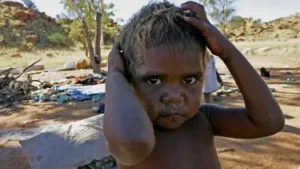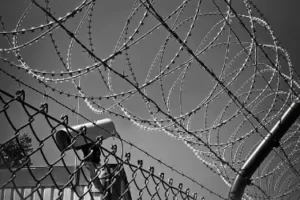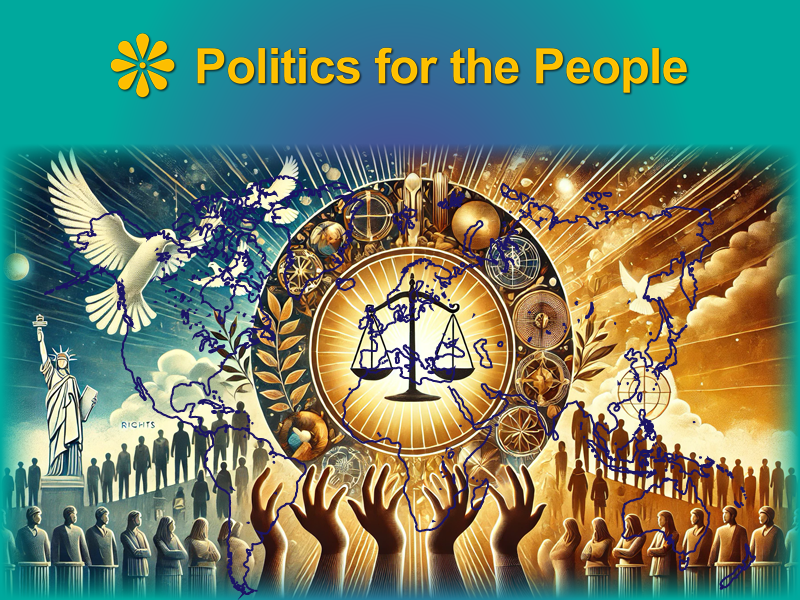Introduction: Confronting Domestic Challenges for Global Leadership
Human Rights Challenges
Both the United States and Australia are recognized for advocating against human rights abuses worldwide. However, they often face criticism for discrepancies between their international advocacy and their domestic human rights records. This article examines why addressing these internal issues is crucial for them to lead credibly on the global stage.
Historical Context: Interventions and Internal Struggles
U.S. and Australia’s Military Footprint
The military interventions by the United States and Australia, often justified as efforts to spread democracy and protect human rights, have frequently resulted in significant civilian casualties and long-term regional instability. These actions raise questions about the sincerity of their human rights advocacy, as they often contradict the democratic values they aim to promote.
Racial and Ethnic Challenges at Home
Overview of Racial and Ethnic Disparities
In the United States and Australia, longstanding racial and ethnic disparities manifest in various sectors including employment, education, healthcare, and within the justice system. These disparities are not merely remnants of past injustices but are continually perpetuated by existing policies and social attitudes that often favour the majority ethnic groups while marginalizing minority communities.
Systemic Racism in the Justice System
In the U.S., systemic racism in the criminal justice system is evident in the disproportionate rates of incarceration among African Americans and Latinos compared to their white counterparts. Factors contributing to this disparity include racial profiling, sentencing disparities, and unequal treatment by law enforcement agencies. Similarly, in Australia, Indigenous communities face higher rates of imprisonment and are more likely to die in custody than non-Indigenous people, highlighting systemic issues within the criminal justice system.
Educational and Economic Disparities
Racial and ethnic disparities extend into the education sector, where minority communities often have access to lower quality education. In the U.S., schools serving predominantly African American and Hispanic students receive significantly less funding than those serving predominantly white students. This inequity affects the quality of education offered, perpetuating a cycle of poverty. In Australia, Aboriginal and Torres Strait Islander peoples also face challenges in accessing quality education, which impacts their economic opportunities and perpetuates socioeconomic disparities.
Health Inequities
Health disparities are another critical issue, with minority groups experiencing poorer health outcomes than their majority counterparts. In both countries, these communities suffer from higher rates of chronic diseases such as diabetes and heart disease and have lower life expectancies. Factors contributing to these disparities include limited access to healthcare services, cultural barriers, and lower rates of medical insurance coverage.
Housing and Segregation Issues
Racial and ethnic minorities in both the U.S. and Australia also face challenges in housing, characterized by discriminatory practices such as redlining and gentrification that limit their options to live in areas with better resources. This segregation not only affects their access to quality housing but also isolates them from job opportunities and social services, further entrenching economic inequalities.
Policy and Social Initiatives
Addressing these challenges requires comprehensive policy reforms and robust social initiatives aimed at dismantling systemic barriers and promoting inclusion. This includes reforms in policing and criminal justice, investment in education and healthcare in marginalized communities, and the implementation of fair housing practices. Social initiatives could involve community programs that enhance cultural competence and promote diversity in various sectors.
The China Conundrum
Criticism Beyond Borders

Both nations are vocal critics of China’s treatment of ethnic minorities, particularly the Uighurs in Xinjiang. However, this criticism is often perceived as influenced by geopolitical interests rather than solely humanitarian concerns, raising questions about the consistency and sincerity of their human rights diplomacy. West’s Media on China: Propaganda or Reality?
Guantanamo Bay and Australia’s Offshore Detention
Controversial Detention Practices
The Guantanamo Bay detention camp and Australia’s offshore detention centers on Manus Island and Nauru have been internationally condemned for their harsh conditions and violations of human rights standards. These practices not only inflict severe mental and physical trauma on detainees but also severely tarnish the international reputation of both nations.
Indigenous Rights and Historical Wrongs
Ongoing Indigenous Struggles

The treatment of Native Americans in the U.S. and Aboriginal and Torres Strait Islander peoples in Australia reflects deep-rooted discrimination and injustice. These groups continue to fight for land rights, cultural preservation, and access to basic services, highlighting the need for substantial domestic human rights reforms.
Immigration and Asylum Policies
Policies Under Scrutiny

The U.S. and Australia’s immigration policies, including the U.S.’s family separation policy and Australia’s ‘Stop the Boats’ policy, have faced global criticism for their harsh treatment of asylum seekers and refugees. These policies underscore the inconsistencies in their human rights agendas and call for urgent reform.
Moving Towards Genuine Reform
The Path to Consistent Advocacy
Human rights reforms refer to the efforts made to improve and protect the rights and freedoms of individuals. These reforms aim to address issues such as discrimination, inequality, and violations of basic human rights. Through legislative changes, policy developments, and international cooperation, human rights reforms seek to create a more just and equitable society for all.
For the U.S. and Australia to champion human rights effectively, they must adopt transparent, inclusive policies that rectify domestic injustices and support societal healing. Key strategies include:
1. Establishing Transparent Oversight: Implement independent bodies to monitor and ensure government alignment with human rights standards.
2. Community Engagement and Empowerment: Involve marginalized communities in the policymaking process through structured dialogues and partnerships.
3. Legal and Legislative Reforms: Overhaul criminal justice and immigration laws to comply with international human rights norms.
4. Education and Awareness Programs: Launch educational initiatives that promote public understanding of human rights issues.
5. Supporting International Human Rights Mechanisms: Actively participate in and adhere to the guidelines of international human rights bodies.
6. Restorative Justice Approaches: Implement practices that focus on repairing the harm caused by offenses and promote societal healing.
7. Economic and Social Policy Adjustments: Address the root causes of human rights abuses with policies aimed at reducing poverty and improving access to education and healthcare.
Conclusion: Leading by Example
To effectively lead in global human rights advocacy, the U.S. and Australia must ensure their domestic policies reflect the values they promote internationally. Addressing their internal human rights challenges is essential for their integrity and leadership on the world stage.
Call to Action: Join the Conversation
What reforms should the U.S. and Australia implement to enhance their human rights records at home? Engage with us in the comments below and share your insights on how these nations can better lead by example in the realm of human rights.
References:
Human Rights in Australia 2022: https://www.amnesty.org/en/location/asia-and-the-pacific/south-east-asia-and-the-pacific/australia/report-australia/
Human Rights Watch 2022: https://www.hrw.org/world-report/2022/country-chapters/australia
Does Australia violate human rights?: https://www.nswccl.org.au/australia_violates_human_rights
Australia’s human rights record ’embarrassing’ Amnesty International says:
https://www.sbs.com.au/news/article/australias-human-rights-record-embarrassing-amnesty-international-says/s90w2ihar
Human Rights United States of America: https://www.amnesty.org/en/location/americas/north-america/united-states-of-america/report-united-states-of-america/
Human Rights Watch United States: https://www.hrw.org/world-report/2022/country-chapters/united-states
Hypocrisy and Human Rights Abuse In The Land Of The Free: https://www.humanrightspulse.com/mastercontentblog/hypocrisy-and-human-rights-abuses-in-the-land-of-the-free
The global backlash against human rights: https://www.ohchr.org/en/statements/2018/06/global-backlash-against-human-rights

